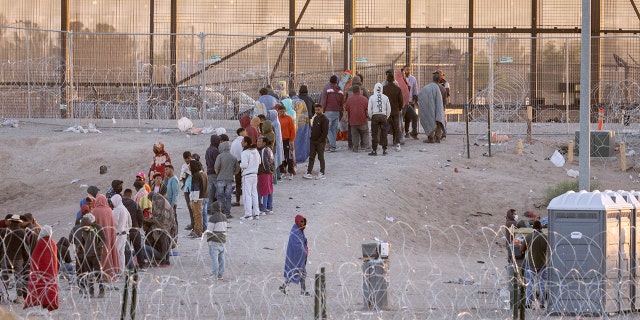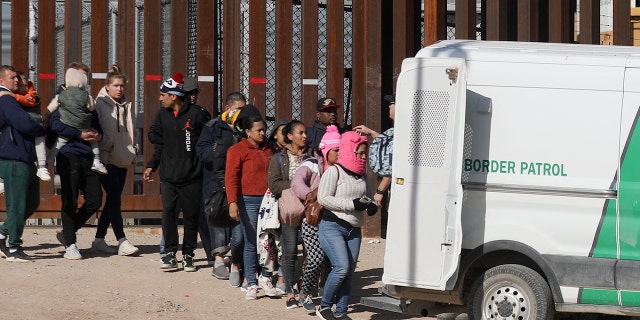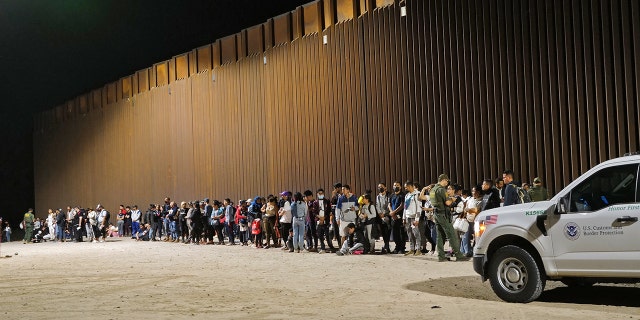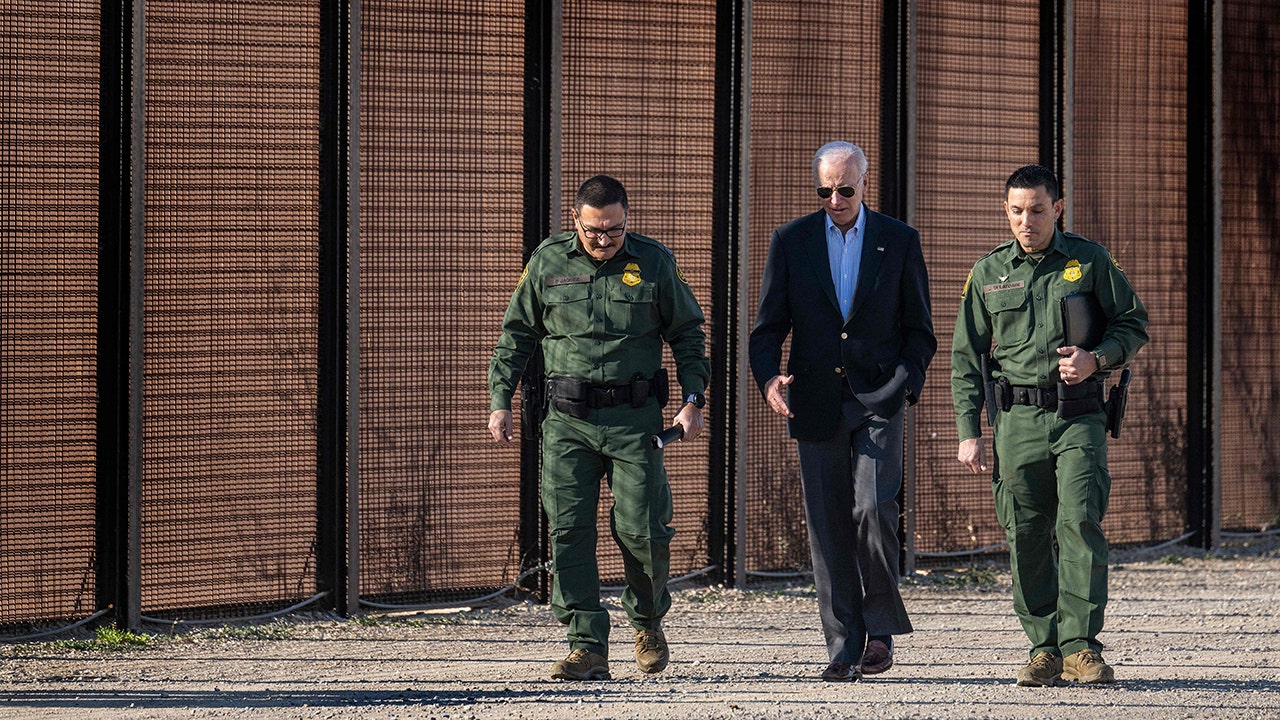A key part of President Biden’s immigration policy, the humanitarian parole program, which allows up to 30,000 people from Cuba, Haiti, Nicaragua and Venezuela to enter the U.S. monthly, will face trial to determine its legality later this week.
The program, which was created for Venezuelans in the fall of 2022 and was expanded again in January, allows migrants from these countries to find a financial sponsor in the U.S. and then grants them a two-year stay. The Biden administration argues the program is vital in reducing stress on the U.S.-Mexico border but 21 Republican states claim in a lawsuit that the administration is inappropriately using the program – usurping the power of Congress in doing so.
The Republican lawsuit threatening to end the program will be heard by Judge Drew Tipton, a Trump appointee, in Victoria, Texas, beginning Thursday. A decision will come later.
Roughly 181,000 people have entered the U.S. under the humanitarian parole program since Biden launched the initiative.

Immigrants wait to be transported and processed by U.S. Border Patrol officers at the U.S.-Mexico border on May 12, 2023, in El Paso, Texas. (John Moore/Getty Images)
In the Texas trial, Republican states are expected to argue the Biden administration usurped the power of Congress by using the humanitarian parole program to allow up to 360,000 people annually into the U.S. from Cuba, Haiti, Nicaragua and Venezuela.
The Republican states have described the program as an overreach of a parole power initially intended to be used on a case-by-case basis for urgent humanitarian reasons or significant public benefit.
In response, the Biden administration has argued that it was forced to utilize the program amid the absence of congressional action to overhaul the nation’s immigration system, which continues to see sharp post-COVID increases.

President Joe Biden speaks with US Customs and Border Protection officers as he visits the US-Mexico border in El Paso, Texas, on Jan. 8, 2023. (JIM WATSON/AFP via Getty Images)
Also, the administration further claims it has the power to use the humanitarian parole program this way and credits the initiative with drastically reducing migrant crossings at the U.S.-Mexico border.
BORDER PATROL SECTORS NEAR OR OVER CAPACITY AS MIGRANT NUMBERS SURGE
Program applicants still must pass background checks and have a financial sponsor in the U.S. to vouch for them and, if approved, must fly into a U.S. airport instead of crossing at the southern border. They can then stay in the U.S. for two years in efforts to obtain a work permit.
There are no unique factors to determine a sponsor and nearly anyone can be one provided they fill out the paperwork.
But, the administration’s strategy is just one lawsuit away from collapse.

There are no unique factors to determine a sponsor and nearly anyone can become one if they fill out the necessary paperwork. (HERIKA MARTINEZ/AFP via Getty Images)
Blas Nuñez-Neto, the assistant secretary for border and immigration policy with the U.S. Department of Homeland Security, said in a recent conference call that the government is worried about the upcoming trial and potentially losing the case, The Associated Press reported.
It will appeal a loss, Nuñez-Neto said.
DHS CALLS FOR MORE AGENCY VOLUNTEERS TO HELP PROCESS MIGRANTS AT SOUTHERN BORDER
Tipton previously ruled against the Biden administration on an immigration case. The federal government attempted, but failed, to have the humanitarian parole case transferred from Tipton’s courtroom.
The Biden administration’s current use of the program appears to be one of the largest single uses of the humanitarian parole authority in U.S. history. The program has previously been used to provide entry to Vietnamese, Cambodians and Laotians in the late 1970s, Iraqi Kurds who helped the U.S. in the 1990s Gulf War and Cubans fleeing their country at various times, according to data from the Cato Institute.

Blas Nuñez-Neto, the assistant secretary for border and immigration policy with the U.S. Department of Homeland Security, allegedly said in a recent conference call that the government is worried about the upcoming trial and will appeal a loss. (Nick Ut/Getty Images)
The U.S. also used its humanitarian parole powers to grant entry to tens of thousands of Ukrainians following Russia’s February 2022 invasion.
The Biden administration started the program for Venezuelans in October 2022 and added Cubans, Haitians and Nicaraguans in January.
The Associated Press contributed to this report.







GIPHY App Key not set. Please check settings